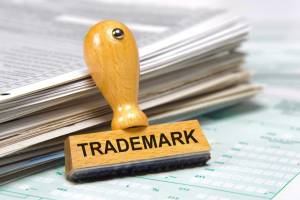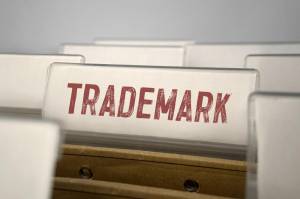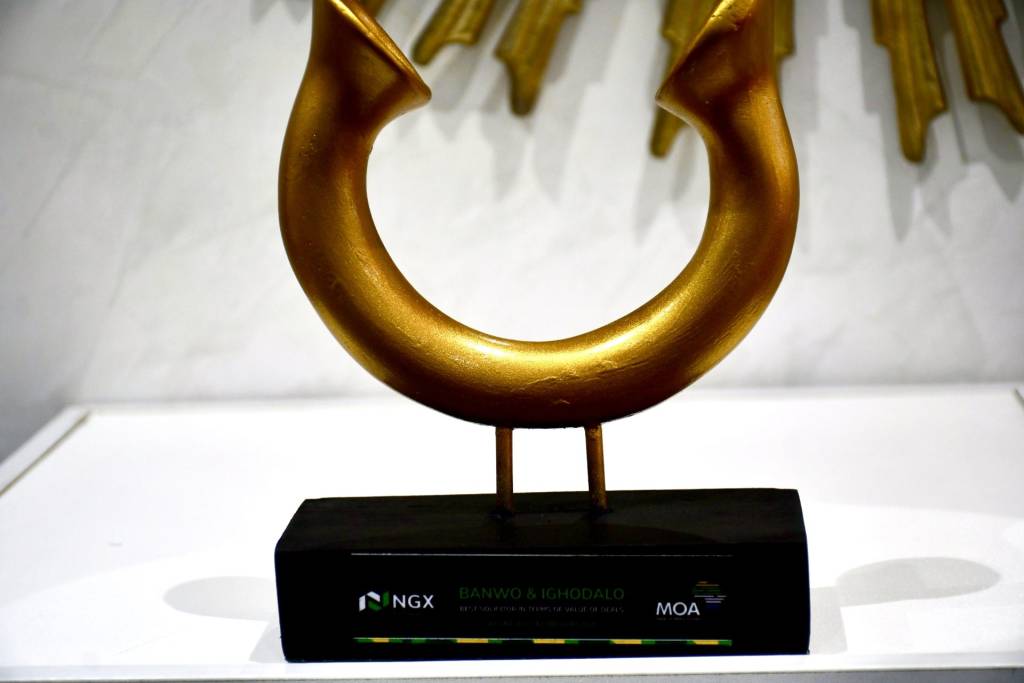
Introduction
Registering a trademark confers on the proprietor exclusive rights to use the registered trademark. Thus, trademark proprietors can institute trademark infringement action(s) in respect of any unauthorized use of their trademarks. Nigeria offers robust statutory safeguards for trademark proprietors seeking to protect unauthorised use of their trademarks. For example, section 13 of the Trademarks Act[1] (the “Act”), prohibits the registration of a trademark that is confusingly similar to an existing mark, or a trademark that is likely to deceive or cause confusion in the course of trade.
Although the provisions of the Act are expressed in clear terms, the question of whether (and if yes, to what extent), a mark is confusingly similar to an existing trademark remains a matter for judicial interpretation, the outcome of which would normally turn on the facts and circumstances of each case.
Nigerian jurisprudence on the use of similar or identical marks has evolved over time, with the decision in Niger Chemists Ltd v. Nigeria Chemists[2] laying the judicial foundation as far back as 1961. Here, the plaintiff who carried on business as a chemist under the name “Niger Chemists Ltd” and was popularly known as “Niger Chemists” succeeded in an action against the defendant who set up a similar business under the name – “Nigeria Chemists”.
In a further development of this jurisprudence, the Federal High Court (the “FHC”), on December 9, 2024, delivered judgment in Suit No. FHC/L/CS/332/2022 – Elo Othuke Azaino v. Sterling Bank PLC (the “Azaino Case”), reaffirming, among other things, the principles governing trademark infringement in Nigeria.
Facts of the case
The Plaintiff (the owner of a business enterprise in the food services industry, trading under the name and style of “Choplife Eatery”), instituted an action at the FHC for trademark infringement and passing off against the Defendant, a financial institution. The gravamen of the Plaintiff’s case was that the Defendant’s use of the words “choplife” and “choplaif” for the promotion of its eat-and-drink festival (the “Festival”) constituted an infringement of the Plaintiff’s exclusive rights in the registered trademark “CHOPLIFE” and amounted to passing off, by falsely suggesting an affiliation or partnership with the Plaintiff and misrepresenting the Plaintiff’s business as forming part of the Defendant’s brand.
The Plaintiff claimed to be the proprietor of the trademark, “CHOPLIFE”, registered under Class 43, in respect of which it was issued a Certificate of Registration (“CoR”) dated July 16, 2020. The Plaintiff argued that he coined the word “choplife” in 2001 and has, since that time, used it continuously in the course of his business. The Plaintiff further argued that on October 12, 2017, he applied for the registration of the word “choplife” (which formed part of his business name), as a trademark, and that he was notified (on October 19, 2017, via email) of the acceptance of his application by the Trademarks Registry (the “Registry”). The Plaintiff testified that from the date of his application and the notification of acceptance, he continually followed up at the Registry and was informed that, having passed the hurdle of acceptance, he should await the issuance of the CoR by the Registry. Accordingly, the Plaintiff submitted that, pursuant to section 22(2) of the Act, the registration of the trademark “CHOPLIFE” is deemed to have taken effect from the date of notification of acceptance by the Registry. Instructively, the Plaintiff failed to tender the email from the Registry notifying him of the acceptance of his application.
In contrast, the Defendant contended, inter alia, that:
- the word “choplife” is common to the Nigerian (and Africa) lingua, and as such, is not inherently distinctive or capable of exclusive appropriation, particularly in the absence of prior registration or public notification of exclusive use.
- its use of the word “choplife” was a one-off occurrence, solely for the promotion of the Festival which held on December 29, 2019.
- it did not organize the Festival but merely sponsored it.
- It registered the “CHOPLAIF” trademark on February 11, 2020, under Class 41 for entertainment-related services, distinct from the Plaintiff’s mark “CHOPLIFE”, registered under Class 43 in respect of food and drink services.
- in the absence of evidence of notification of acceptance of the Plaintiff’s trademark application, the said application was deemed abandoned pursuant to section 22(4) of the Act, and in any event, the effective date of the Plaintiff’s trademark registration was July 16, 2020, as endorsed on the CoR.
- at the material time the Defendant registered the “CHOPLAIF” trademark, the Plaintiff’s mark, “CHOPLIFE”, had not yet been registered.

Decision of the Federal High Court
The FHC upheld the Defendant’s submissions, effectively dismissing the Plaintiff’s suit on the basis that:
- the effective date of the Plaintiff’s application and registration of the trademark, “CHOPLIFE”, is July 16, 2020, as endorsed on the CoR. In other words, the FHC rejected the Plaintiff’s argument that October 19, 2017, should be deemed as the date of registration of the trademark arguably because the Plaintiff failed to tender in evidence the aforesaid email of notification of acceptance of his application for registration of the trademark.
- the word, “choplife”, is commonly used in Nigerian (and Africa) lingua and has no distinctiveness attached to it;
- the Defendant, being merely a sponsor and not the organizer of the Festival, could not have led attendees to believe it was acting as an affiliate or partner of the Plaintiff’s business.
Commentary
By virtue of section 22(2) of the Act, the date of application of a trademark is deemed to be the date of registration. For emphasis, section 22(2) of the Act provides as follows:
“Subject to the provisions of this Act relating to international arrangements, a trademark, when registered, shall be registered as of the date of the application for registration, and that date shall be taken for the purposes of this Act to be the date of registration.”
The import of the above provision is that the Act accords retrospective effect to the registration of a trademark. By a literal interpretation of section 22(2) of the Act, it is arguable that a proprietor’s right in a trademark enures from the date of the application for registration, such that the proprietor enjoys priority over any subsequent or competing claims, notwithstanding any delays in issuing the CoR by the Registry.
As noted above, the Plaintiff failed to tender evidence of notification of acceptance of his application for registration of the trademark “CHOPLIFE” by the Registry. Such evidence would have substantiated his claim as to the effective date of registration of his trademark and would have been consistent with the decision of the Court of Appeal in D & S Trading Co. Ltd v. Remia C.V. & Trixibelle[1], where it was held that a notification of acceptance constitutes conclusive evidence of trademark registration where a certificate has not been issued by the Registrar. Specifically, the appellate court held that:
“the acceptance letter from the Registry of the Trademark is a loud statement to the effect that the applicant has satisfied the entire requirement for the registration only awaiting some administrative issues outside the control of the applicant for the certificate to be issued. The acceptance letter has the registration no. of the trademark, the trademark itself and the class in which it is registered. The only caveat is that it will be published for the general public.”
We note the FHC’s observation that a trademark application can be treated as abandoned under section 22 (2) of the Act where an applicant, by reason of his default, fails to complete the registration of the trademark within twelve (12) months from the date of the application. In this regard, the Defendant had contended that the Plaintiff abandoned his application for registration of the trademark “CHOPLIFE”. In addressing this contention, the FHC appeared to have glossed over the issue raised by the Plaintiff concerning whether a trademark application can be deemed abandoned in the absence of the issuance of a notice of non-completion of trademark registration (“Notice of Non-Completion”) by the Registrar, as contemplated under section 22(4) of the Act, reproduced below for ease of reference:
“Where registration of a trademark is not completed within twelve months from the date of the application by reason of default on the part of the Applicant, the Registrar may, after giving notice of the non-completion to the Applicant in writing in the prescribed manner, treat the application as abandoned, unless it is completed within the time specified in that behalf in the notice.”
While this issue may appear academic given that a CoR had already been issued to the Plaintiff, it nonetheless raises a fundamental question of law: Whether, in the absence of the Notice of Non-Completion, a trademark application can be deemed abandoned by effluxion of time, particularly where an acceptance letter has been issued by the Registrar but a CoR had not been issued within twelve (12) months?
We contend that the answer to the above question is in the negative. A purposive interpretation of section 22(4) of the Act clearly indicates that the issuance of the Notice of Non-Completion by the Registrar is a condition precedent to establishing abandonment of a trademark application. The statutory requirement that the failure to complete the registration must be “due to the default of the applicant” introduces a subjective test which, in our view, cannot be presumed or inferred by an adverse party. Such a finding lies within the knowledge of the Registrar, who exercises supervisory authority over the registration process. Moreover, it is contended that the use of the word “may” in section 22(4) of the Act relates only to the Registrar’s discretion to treat an application as abandoned after issuing the Notice of Non-Completion, but not whether to issue the said notice itself.
With respect to the FHC’s decision that the word, “choplife”, is a colloquial expression commonly used in Nigerian lingua to denote “fun” or “enjoyment” and therefore lacks distinctiveness, it is contended that while the FHC’s reasoning is well-founded, the finding may have been different had the Plaintiff adduced evidence demonstrating that the mark had, through frequent use, acquired distinctiveness and/or notoriety in the restaurant business. The law is settled that a trademark may be distinctive inherently or may acquire distinctiveness over time. In Ferodo Limited v. Ibeto Industries Limited[2], the Supreme Court affirmed this principle in the following words:
“The element of distinctiveness is consonant to or predicted on some age by way of the long or extensive use. What constitutes a long or extensive user is a question of fact to be determined in the light of the circumstances of the case. Once the trademark, by frequent use, has acquired notoriety in the trade, it will be said to have acquired the character of distinctiveness.”
Similarly, in Holiday Inns, Inc. v. Holiday Out in America[3], the United States Court of Appeal held that although the word “Holiday” is generic and widely used by others for motel services, due to the Plaintiff’s extensive advertising and its success in developing a large chain of motels throughout the United States, it had acquired distinctiveness as it is likely that the public when asked to associate a business organization with the word “Holiday” would think of “Holiday Inn”.
Finally, with regard to the FHC’s finding that the Defendant, being merely a sponsor of the Festival, cannot be held liable for any alleged infringement arising therefrom, it is contended that while this position may appear justifiable (particularly in view of the fact that the Act does not expressly provide for contributory and/or secondary liability in trademark infringement), such position should, however, be applied with caution. Judicial authorities in other jurisdictions have recognized that a party may, in appropriate circumstances, be held liable where it had actual or constructive knowledge of the infringement, participated in the infringement and/or derived commercial benefit from the unauthorized use of the trademark.[4]
Conclusion
The decision of the FHC in the Azaino Case reaffirms the legal principles governing trademark infringement action in Nigeria, while also laying bare the dynamics of such action when considered against the factual matrix of each case. As Nigeria’s trademark jurisprudence continues to evolve, it is hoped that the court would be inclined to adopting a liberal/purposive approach – one that is flexible and responsive to the factual nuances and commercial realities underlying each action.
From a commercial standpoint, the decision underscores the need for businesses to register their mark promptly and to avoid the usage of generic or colloquial expressions in the formulation of a brand or mark. This is particularly so for nascent businesses, given the difficulty in establishing acquired distinctiveness, goodwill and/or reputation in relation to the mark.
DISCLAIMER: This article is only intended to provide general information on the subject matter and does not by itself create a client/attorney relationship between readers and our Law Firm or serve as legal advice. We are available to provide specialist legal advice on the readers’ specific circumstances when they arise.












